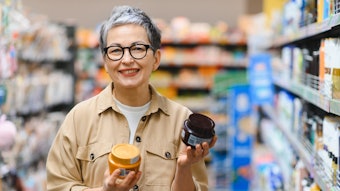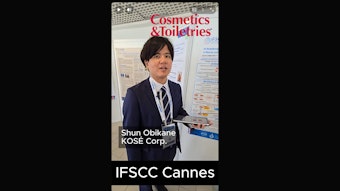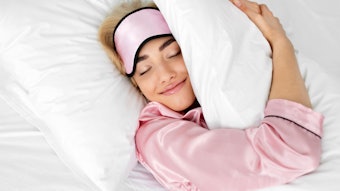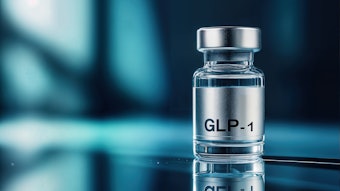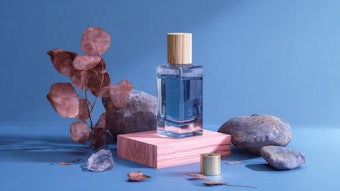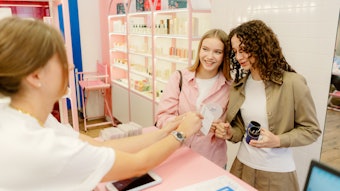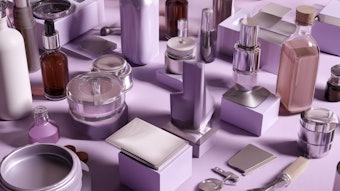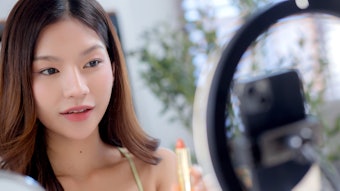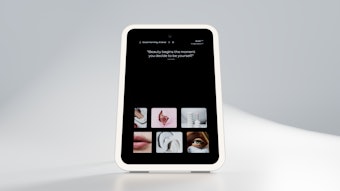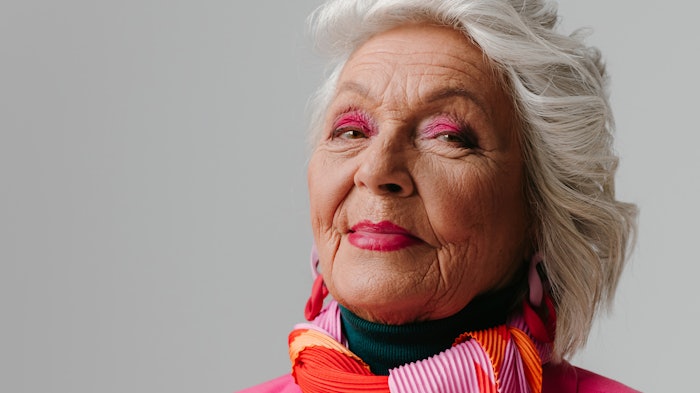
Editor's note: In this edition of Keeping Cosmetics in Check, columnist and industry champion Karl Laden, Ph.D., technical manager of Alpa Cosmetics, highlights age discrimination, suggesting that makeup could fight it. He also dismisses the uphill battle to change perceptions of aging. Cosmetics & Toiletries did not necessarily agree with all of his views, so we dug deeper in a Q&A follow-up with him. Read on for the full column and Q&A.
Aaron Greenberg is an arborist who, with his staff, maintains an Arboretum in the Philadelphia area. In addition, he occasionally visits sites where large, often very old trees have been reported, to measure them. Interestingly, when he reports on these trees, he and other arborists refer to them as champion trees, honoring them regardless of their not having feelings.1
Unfortunately, humans do not always view their elders in the same way; terms like geezer and hag come to mind. And even when other, presumably more neutral terms are used, they still tend to cast people into an age category, which in this author's view happens less frequently than with younger people. Golden Ager, senior citizen and, as my editor sometimes refers to me, industry veteran categorize people into age groups that may not always be considered complementary.
Organizations in many countries have fought hard to write laws against age discrimination in the workplace but these do not apply to social discrimination. It's no wonder why many people, men and women, fight against looking old.
Overcoming Perceptions on Aging: An Uphill Battle
Recent attempts have been made to normalize facial aging and embrace it as part of daily life, as articles from Psychology Today and Harvard Health demonstrate.2, 3 These examples offer commentaries on why society often has a negative attitude against looking old — and how to deal with it, including sometimes unnecessary and unneeded treatments to correct it. One author suggested to begin by noticing how media tends to portray older women in an unflattering way, which contributes to these feelings about the aging face. Unfortunately, the author's suggestions for dealing with it reminded me of the mind over matter approach to aging: "If you don’t mind, it won’t matter."
I wholeheartedly agree with efforts to change the societal attitude toward aging and the aging face. However, I think it is a long, uphill and difficult challenge to overcome. The idea has been around since the Bible and it still hasn't changed. What's more, much like society, the Bible is somewhat conflicted, stating on one hand, "...the Lord said to Samuel, do not consider his appearance or his height," but on the other hand, " ... the Lord does not look at the things man looks at. Man looks at the outward appearance, but the Lord looks at the heart.”
Makeup as a 'Weapon' Against Age Discrimination
And so I suggest, with a certain degree of reluctance, that perhaps one of our best weapons against age discrimination is makeup. Even a short 5-10 min application session can improve the perceived age, as a recent well-controlled study showed.4 The effect was greatest for those in their 40s and 50s, which reportedly reduced their perceived age by about 1 1/2 years. I'm sure this is not as much of a reduction as most women would like, but at least it's a start. Interestingly, in the study, it did not affect the age perception of women in their 30s; and for women in their 20s, it actually made them look older.
I believe that if our industry focused its makeup formulating and application techniques specifically to making the aging face look younger, considerably better results could be obtained.
Look Younger, Feel Younger
For many years, the Personal Care Products Council (PCPC) has been running its Look Good Feel Better program, intended to provide free help for men and women whose facial appearances have been affected by medical conditions. Through free group workshops, online and virtual support, and expert beauty content and instruction, Look Good Feel Better helps individuals regain a sense of normalcy and control.
I certainly agree with these efforts, but perhaps promoting the concept of fighting age discrimination through the use of cosmetics should also be stressed. A program to assist men and women in their 70s and 80s who suffer emotional and/or psychological distress because of their aged appearance could provide real benefits. In addition, it would promote to the public the concept of using makeup to look younger and feel younger; it certainly can be shown that the judicial use of cosmetics can make people look younger.
Agree to Disagree? A Brief Q&A with the Author
Editor's note: In some ways, we at Cosmetics & Toiletries did not necessarily agree with all the points made in Laden's latest column. As such, we dug a little deeper to see what underlies Laden's views.
- Cosmetics & Toiletries: We get that you are saying makeup can help with age discrimination. And that a wrinkled, aged appearance is generally not desired. However, we think makeup companies and social norms are moving beyond this to accept aging, and are instead considering how healthy the skin is as it ages. You see many more mature women in commercials depicted as beautiful, for example. It may not be 100% there yet, but there seems to be a shifting attitude.
Laden: You are correct. Note in my column that I reference some recent articles, mostly from psychologists, on how to deal with the aging face; the concept being we should begin to accept the normal appearance of an aging face and not consider it a detriment. Unfortunately, not all people feel this way — and actually that’s a good thing! If all people felt that way, the market for anti-aging cosmetics would be in recession.
While the cosmetic industry has begun to promote the concept of accepting the aging face, it spends a hell of a lot more dollars on advertising products that are meant to prevent the appearance of aging on the face. Which message gets through to the consumer more strongly?
- Cosmetics & Toiletries: You also mention, "if the industry focused its makeup formulating and application techniques specifically to make the aging face look younger, considerably better results could be obtained." But isn't that what all these evening skin tone, anti-hyperpigmentation, etc., products are trying to do?
Laden: Certainly many of the anti-aging products currently on the market do provide help for aging skin, but the improvement occurs over months if not longer, and does not produce the dramatic effect that many people who suffer from concerns about their appearance are hoping for.
I have always been impressed with the results that the Look Good Feel Better program by the PCPC has been able to accomplish with people who suffer because medical treatments have altered their appearance. Could a similar thing not be done for people who suffer from their appearance due to age?
I may be wrong, but I think that people in their 70s and 80s are less likely to be skilled and have the techniques available to properly apply makeup to make them look younger. In addition, anti-aging products whose results are promised in the years to come would most certainly be less likely to benefit older consumers, or gain their interest.
The Best Five Shekels Ever Wasted
Laden: To conclude with a personal story on this subject, when my wife was in her late 60s, she always wondered if she looked older or younger than her age. Asking friends was of no help since they wouldn’t tell her the truth. Finally, she discovered a way to get a completely honest opinion...
They changed the regulations in Israel so that women over 65 could ride the buses for half price. Instead of 10 shekels, it was five shekels. She immediately thought this was her chance. She would get dressed in the morning, get on the bus and give the driver a 20 shackle note.
If the driver gave her 15 shekels change, it was a bad day. It meant she looked over 65. If the driver asked her age, it was a half victory. But, if the driver gave her 10 shekels change, it was a good day. When our friends said she was wasting money, she always said it was the best five shekels she ever wasted.
Addendum (from the author): I would like to express to the editor of Cosmetics & Toiletries, Rachel Grabenhofer, that I was not, nor will I be offended by her use of the term "industry veteran." However, I cannot help but wonder if she just once called me an “industry champion,” whether it might not rekindle my 2024 Summer Olympics fantasy of becoming a French pole vaulter.
In Memoriam
Cosmetics & Toiletries is saddened to report the passing of our long-time columnist, advisor, colleague and friend, Karl Laden, Ph.D., the author on the present article. We will miss him.
References
1. Greenberg, A. (2022 Fall). Champion trees of Pennsylvania. Forestry Magazine. Available at https://pabigtrees.com/about
2. Whitbourne, S.K. (2024, Feb 27). How to live with your aging face and not worry about it. Psychology Today. Available at https://www.psychologytoday.com/intl/blog/fulfillment-at-any-age/202402/how-to-live-with-your-aging-face-and-not-worry-about-it
3. Harvard Health Publishing. (2024, Jun 28). Why your face ages and what you can do. Available at https://www.health.harvard.edu/staying-healthy/why-your-face-ages-and-what-you-can-do
4. Russel, R., et al. (2019). Differential effects of makeup on perceived age. British Journal of Psychology, 110, 87-100; https://bpspsychub.onlinelibrary.wiley.com/doi/abs/10.1111/bjop.12337
5. Personal Care Products Council (PCPC). Look Good Feel Better Foundation. Available at https://www.personalcarecouncil.org/about-us/look-good-feel-better-foundation/

